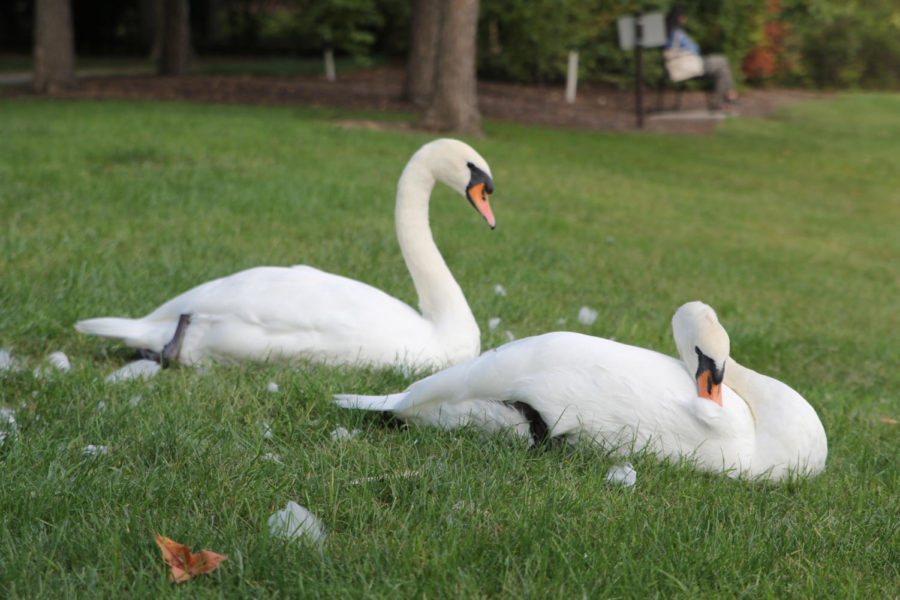Letter: Swan Songs for Lancelot and Elaine
Lancelot and Elaine sitting beside Lake Laverne. Lancelot and Elaine were named by student Jean Nesinwanger, who won $10 in 1935.
July 19, 2022
Best friends since 2003 when they were given a charming pastoral home on Iowa State’s Lake LaVerne, the two lady mute swans, donning the legendary medieval names Elaine and Lancelot, which had been passed along to resident swan pairs since 1935, reigned gracefully over the usually placid waters. They could almost always be seen together either dabbling for pond bottom greens near the shoreline or napping with heads tucked under their glorious seraphim wings on the shore. Only one of them glides from shore to shore now, whether Elaine or Lancelot, it’s not to know. She died a natural death. I think only her partner heard her swan song.
She must be inconsolable.
I visited them often, a latte from the Starbucks across the street in one hand, a notebook and pen in the other. If lucky, I’d find an open bench close to their momentary stakeout position. They were perpetually on alert for encroaching geese, except when they were napping.
If a goose would swim toward their chosen hangout spot, one of the swans would rise up, spread her gigantic wings and flap across the surface of the water at a furious speed toward it. The silly goose would retreat to a safe distance, and mill around the pond elsewhere acting like nothing had happened. Not long after, the teaser would try again. The medieval lady would charge again.
The goose would back off for a longer while, smartly deferring to the swans’ territorial preeminence. I would sit on my bench laughing. I’m no longer a student at ISU, and I no longer pay regular visits to the shores of Lake LaVerne, but I am saddened by my elegant, feathered friend’s demise and her friend’s certain desolation. They were best friends for almost twenty years. Each spring they built a nest together, each pitching in grasses and sticks. They laid eggs in the nest, even though no one was around to fertilize them, and took turns sitting on them.
Every spring they must have experienced a kind of sadness when they realized there’d be no cygnets. In the deep cold of an Ames winter, they huddled close on the shore with their heads tucked under their wings, almost invisible with their white on the white of the snow.
They had each other.
While I was a student, I wrote some sonnets about them. My classmates dubbed them “swannets.” Perhaps they can serve as swan songs for the swan who no longer swims on Lake LaVerne. I wish I could translate them into swan language. They might have served to comfort the one left behind.

















